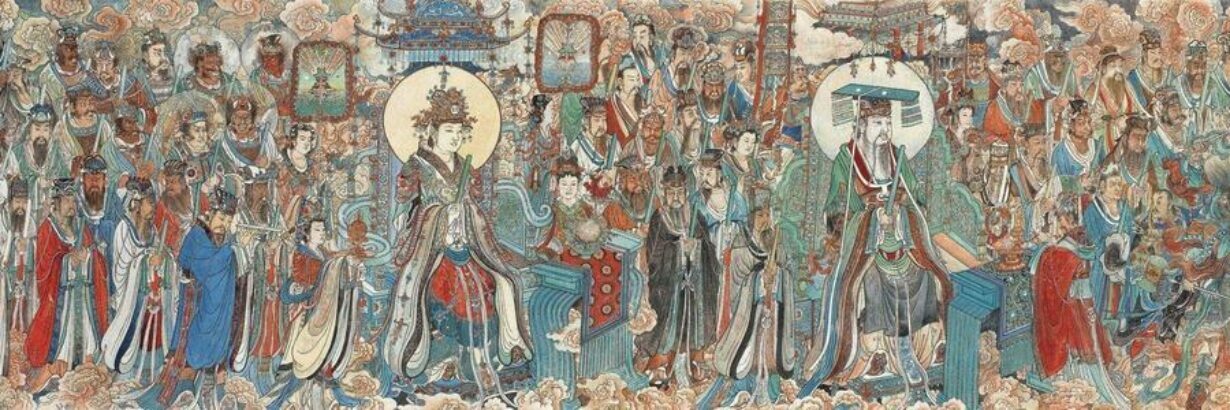Classical scriptures often refere to the Liù Chén六尘 or Six Dust. Daoist use the term “Dust” to discribe something impure. Six Dusts六尘 refers to the external influences of the six sense organs of the eyes 眼, ears耳, nose鼻, tongue舌, body身, and mind意.《养生咏玄集》says: “The six dusts refer to the eyes, ears, nose, tongue, body, and mind. Each of the six sense organs is stained by the six dusts.《皇经集注》Volume 3 says: “The six foundations eyes, ears, nose, mouth, body, and mind are impure, so they are called six dusts.”
《皇经集注》Volume 3 says: “Wealth财, sex色, fame名, food食, sleep睡, and selfishness自便私心, or color色, sound声, fragrance香, taste味, touch触, and Fa法 are the six dusts. It is said that the state of the six foundations can be polluted with dirty dust of the six sense organs.
《上清道宝经》 Volume 3 about six dusts states:
Dust of Colour色尘: green, yellow, red, white, and black eyes;
Dust of Sound声尘: Gong宫, Shang商, Jiao角, Zheng徵, Yuer羽耳
Dust of Fragrance香尘 : Mutton smell膻, burnt焦, fragrant香, fishy腥, stinky nose臭鼻;
Dust of Taste味尘: bitter苦, sweet甘, pungent辛, sour酸, salty咸, and mouth口;
Dust of Touch触尘:soft软, mixed混, light轻, heavy重, firm坚, slippery滑;
“Dust of Fa法尘: Mind produces consciousness..
Written and Translated by Daoist Liu Cheng Yong, German Daoist Association.

